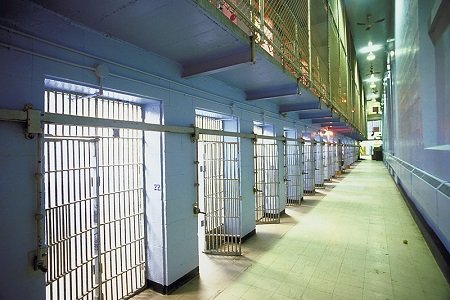“American slavery belongs to the blackest pages of mankind’s criminal record” —Arthur Schopenhauer, 19th century German philosopher
Michelle Alexander is the author of “The New Jim Crow: Mass Incarceration in the Age of Colorblindness.” Alexander, an associate professor of law at Ohio State University and Rebekah Skelton, an education and social justice blogger had a question and answer session examining the country’s systematic effort to psychologically prepare black students for cages rather than careers.
This is not the first time I’ve heard social engineers discuss the school to prison pipeline. Often it is a superficial response to a public outcry against building and using taxpayer dollars to finance building a new jail. However, Alexander frames the issue in a compelling, straightforward historical, social and economic context that is impossible for even the staunchest skeptics to ignore.
Rebekah Skelton: In your own words, describe the school-to-prison pipeline.
Michelle Alexander: The school-to-prison pipeline is part of a larger caste-like system where children are shuttled from their typically decrepit and under-funded schools to brand new, high-tech prisons. At very young ages children are given the message that not much is expected of them and that they are likely one way or another to wind up in prison.
Our schools are still largely separate and unequal, and what’s different about this era than in times past is not just the inferior quality of education that is provided to young people, but the criminalization of young people in many schools across America. The types of minor infractions that would give you a trip to the principal’s office once upon a time now can result in handcuffs and a trip to the county jail. Incidents involving even just disrespect to a teacher or a fistfight in the schoolyard can result in a criminal record for young people. If they’re very young, they may find themselves in juvenile hall, facing a judge, but increasingly young people are treated as adults at early ages— sometimes as young as 13, 14, 15 years old— and wind up facing adult criminal sanctions for the type of behavior that once involved teachers and principals and family members coming together to solve problems, as opposed to trying to dispose of children at young ages.
So really, the school-to-prison pipeline, in my view, reflects the system that’s been created to dispose of our children rather than educate them, counsel them and empower them to do well not only academically, but to imagine a future for themselves that does not include a cage and a lock and key.
RS: Do you think this is a means of social control?
MA: What’s important for us to acknowledge and really reckon with is that this system that shuttles kids from poor schools to brand new, fancy, high-tech prisons did not happen accidentally. It was created. It is a reflection of deliberate policy choices that have been made to invest in prisons and incarceration rather than in education. And we now see the results of those choices. And the result is poor kids, particularly poor kids of color, growing up in a system that is designed for them to fail.
While they’re not given meaningful educational opportunities and they’re targeted by police for routine stops and frisks and searches — treated like potential criminals, even within their own schools and classrooms — doing time ends up seeming more like an inevitable stage of one’s life, rather than a reflection of any personal choices one might make.
So do I think this is a system of racial and social control? Absolutely. This is a system that operates to control populations defined by race and class through primarily punitive interventions, rather than investing in education and job opportunities and the types of investments that might give kids a path out.
RS: When did we really start seeing a trend in schools of ticketing and arresting kids instead of bringing students, parents and teachers together to talk things out?
MA: What I find most interesting is that the trend towards [harsh discipline] in schools really emerged at the same time as [President Ronald Reagan’s] war on drugs and the get-tough movement [in the 1980s]. In fact, the zero tolerance policies that are now standard in schools all across the nation, the language from many of those zero tolerance policies were actually lifted from Drug Enforcement Administration manuals that were aimed at drug law enforcement.
And I think we see the same kind of mentality playing itself out, this war-like mentality. With the war on drugs we’ve defined certain populations, defined by race and class, as the enemy, and in the education system we’ve defined children as the enemy. When we say we have zero tolerance for a population, we’re basically sending the message that these are people we’re willing to dispose of, provided with the least excuse. And that is in fact what we’ve done.
Next week- Cages not Careers: Part II
Jayne Matthews Hopson writes about education matters because “only the educated are free.”
